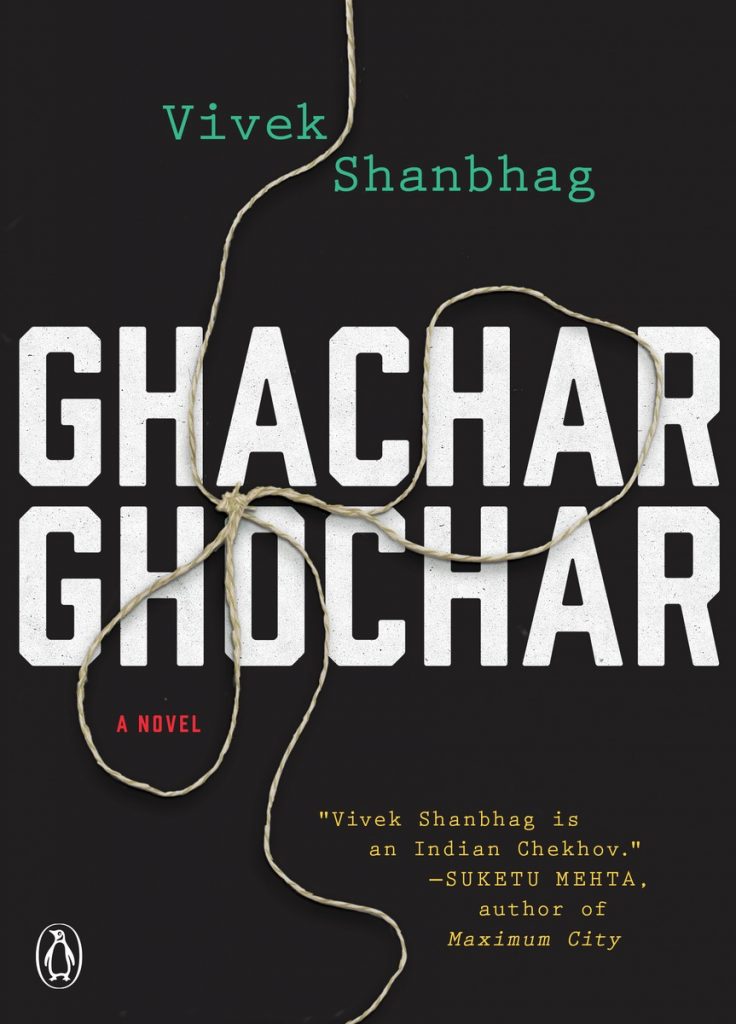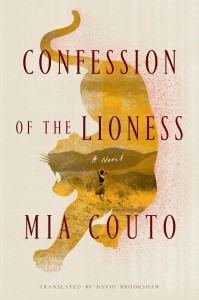
(Faber & Faber)
BY NICHOLE L. REBER
—
The intimacy Vivek Shanbhag creates in his 118-page novel Ghachar Ghochar lingers in a way many of today’s first-person fictions or memoirs don’t. But it’s the realities he shows in this fictional account of rising India that arrest the reader first.
His first novel to be translated from the Indian language of Kannada into English (by translator Srinath Perur), Shanbhag’s story centers around one family’s entrance into the middle class, a popular theme in contemporary Indian literature. There is the traditional Amma (mother), who dotes on her family from her kitchen throne; Appa (father), who’s been forced into early retirement; uncle, Chikkappa, the family breadwinner; sister, Malati, the epitome of spoiled brats everywhere; and the unnamed narrator.
Before opening a profitable spice company, the family used to rely on earning household staples like an iron, a clock, and a suitcase as employer prizes for Appa’s good sales record. All financial decisions were made together. The family even discussed how many rupees Appa could give each person for holidays and on what they’re spent—a pair of pants for the narrator (the son) a cooking spoon for Amma, a sari for sister.
The first sign of the family’s success is a gas oven. Bringing a gas oven into the shabby house, Amma can cook standing up for the first time (in very traditional Indian households cooking is still done whilst kneeling). Soon they move into a house large enough for each person to have a bedroom all his/her own, though not all is marvelous.
“We were leaving something behind, though I couldn’t say what,” the narrator tells us. “The house was huge in comparison to the one we had left. Two stories. A room for each person.”
The furniture brought from their old lives is ill suited to their luxurious life. Neither does their new décor: when Amma and Malati are given free range at the furniture store the results are more mix-it-up, less match-it-up.
Moving into the middle class is more than cosmetic, of course. This is apparent in the quick demise of Malati’s marriage. When she moves in with her new husband’s family, she throws temper tantrums, acts superior to them. “Maybe she had gotten used to having whatever she wanted and it diminished her capacity for making the inevitable compromises that accompany marriage,” the narrator tells us.
Then we come to the narrator’s own marriage, arranged by class not by caste—evidence of modern, newly-middle-class India— occurs for similar and also quick reasons. His wife Anita finds out that despite the big title he has with the family business, he has no bona fide responsibility there, and feels deceived. She can’t relate to a man who doesn’t have to work, who lives off family members, and so she leaves.
It is primarily through the narrator’s relationship with his wife that he conveys the deepest intimacy to readers. It starts, however, long before that. In fact, by the second page, we’re learning how inexperienced he is with women. We meet him after he’s skulked away from his first would-be girlfriend. There’s no conversation, no argument, no nothing except his seeming to disappear from her life. Hanging out at the café afterward, he hopes to find confidence in the adages of the waiter Vincent, which bring supposed therapeutic clarity like American bartenders do for their patrons. “Part of me longs to speak to Vincent but I’m holding back— what if his words hint at the one thing I don’t want to hear?” he says of the man who doesn’t know beyond a superficial level.
The narrator’s a bit wimpy, but in the vein of Nabokov’s Humbert Humbert, we fall for him because of his imperfections, because of his intimate confessions. He gives details of his marriage, not in sexual ways but with gentle self-reflection: “A woman I didn’t know had chosen to accept me, in body and mind.”
“Her arms tightened around me. I could feel her bangles pressing into my back. Through touch, this unknown woman began to be known to me.” Their intimacy is still nascent when she tells him the family story behind the meaning of ghachar ghochar, which is one of the most universal parts of the book.
Later, Anita clashes with the females of the narrator’s family, causing shifts in his own dynamics with them. But he couldn’t stand up for her or against his sister and mother. When Anita leaves town, the narrator and the family reestablish those dynamics.
“It was as if Anita’s absence had allowed us to be ourselves again, without inhibitions.” They’d rather remain an interdependent unit, unbroken by outsiders. Like any intimate unit does.
Read the novel to see if he’ll fight to get Anita back. Read it to learn more about the realities of rising Asia.
Shanbhag is the author of eight works of fiction and two plays, all held to critical success in his native South India. He held a 2016 residency at the University of Iowa’s International Writing Workshop.
—
Nichole L. Reber picked up a love for world lit by living in countries around the globe. She’s a nonfiction writer and her award-winning work has been in World Literature Today, Ploughshares, The Rumpus, Lunchticket, and elsewhere. Read her stories on a Chinese cult, wearing hijab in India, and getting kidnapped in Peru at http://www.nicholelreber.com/.
![[PANK]](https://pankmagazine.com/wp-content/themes/pank/assets/images/pank-logo-large.png)



